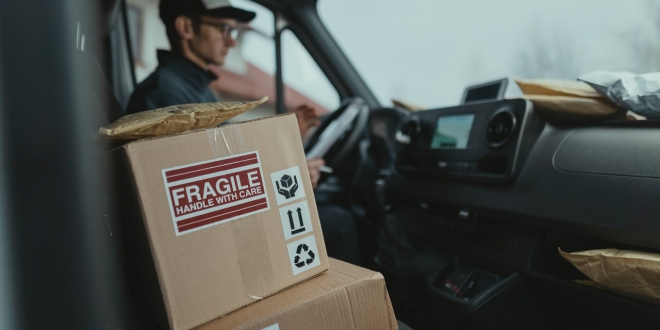Couriers for the delivery firm say they feel compelled to ‘muck in’ and help out with parcel sorting process in understaffed depots.
Drivers for Hermes, one of the UK’s largest delivery firms, say they are having to work for free for several hours a day, despite the company expanding its workforce by thousands during the Covid-19 pandemic.
GMB union officials said they have challenged Hermes UK after receiving multiple complaints from delivery drivers in different areas of the country who said they feel compelled to “muck in” and help with the parcel sortying process in understaffed depots, as they cannot start earning money until it is done. While some couriers are paid for this “extra” work, many are not, the GMB union said.
The GMB union’s national officer Mick Rix said: “We are challenging it because it is wrong. People should not be working for free and people should not be exploited into working for free.”
Several drivers came forward to the union to describe the “impossible choice” they regularly have to face when turning up for their shift. Speaking under the condition of anonymity, couriers explained that as they only get paid per delivery, their earnings are dependent on the process to sort the parcels being completed before they can start their working day.
Most of the approximately 600 depots that Hermes relies upon are run by contractors, many of which are understaffed according to delivery drivers – meaning the parcel sorting process can often be lengthy.
As a result, many drivers feel they have to go in early to help sort the parcels for no extra pay, as the alternative would mean starting later in the day and working until well after dark to get all of their deliveries done and keep their earnings.
Mr Rix said: “There is this relationship that you find that exists in the gig economy where you think: how far do the norms go before it becomes accepted? What seems to be the acceptance here is that people are sorting parcels to ensure that they can get their deliveries out and they’re doing it for free.
“We’re trying to get to the bottom of why this is happening and why there seems to be this expectancy. Because Hermes is a multimillion-pound operation at the end of the day and it can afford to put these things in place.”
In the wake of the Covid-19 lockdowns, thousands of people turned to delivery driving to help make ends meet – adding to an already booming industry as other sectors cut jobs and parcel delivery volumes exploded.
Supermarkets Tesco and Iceland hired a total of more than 9,000 extra delivery drivers between them, while the food delivery app Just Eat reported a 57% increase in delivery orders.
Rix said that, as the UK begins to emerge from the pandemic, large scale change is needed in the industry: “Sometimes you’ve got to wonder: is the success of companies such as Hermes in some respects because they can charge such a low price to clients and customers because there’s a workforce that’s subsidising that price?
“We think that is part of the model that has now got to change for the future. You can’t say you are decent companies if you are not treating people and looking after people well. People are just not going to wear that any more.”
A spokesperson for Hermes: “Parcel sorting is the responsibility of the delivery unit controller with whom Hermes subcontracts. Couriers are not expected to carry out sortation unless separately engaged and paid by the controller. Additional support is provided by Hermes to delivery units that are unable to meet the necessary timings due to volumes. This is fully audited weekly.”






Facebook Comments